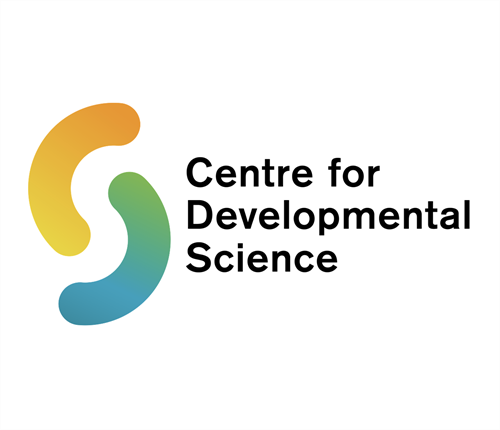CDS Seminar Series : Zoe Ockerby | If an object solves a problem but no one saves it for later, is it still an innovation? and Jess Crimston | What are the odds? Examining children and primates understanding of possibility and probability.
- Location
- 52 Pritchatts Road - Lecture Theatre 1 (G16), In person event, Zoom - registration required
- Dates
- Tuesday 17 October 2023 (13:00-14:30)
This seminar is free to attend and is open to all, both within and outside the University. If you wish to attend in person or via Zoom, please register your interest to attend via the Zoom portal using the link above. Zoom details will be shared prior to the event via email.
We are delighted to announce that the Centre for Developmental Science will welcome both Zoe Ockerby and Jess Crimston, University of Queensland to each present a hybrid short talk with a physical audience welcome to attend 52 Pritchatts Road Lecture Theatre 1, Room G16 taking place on Tuesday the 17th of October 2023 13:00-14:30 GMT.
You are welcome to attend either in person at 52 Pritchatts Road Lecture Theatre 1, Room G16, or online via Zoom. If you wish to attend, please register your interest to attend either in person or online via the Zoom portal using the link above.
There will be the opportunity for an informal discussion after the seminar itself.
To arrange a 1:1 meeting with the speakers, please contact Sarah Beck (Psychology) s.r.beck@bham.ac.uk
CDS Event Host - s.r.beck@bham.ac.uk
Zoe Ockerby: If an object solves a problem but no one saves it for later, is it still an innovation?
Abstract
Innovation is critical to the advancement of human technology and culture. To better understand innovation, it is important to examine its underlying capacities and their development in humans. However, innovation is a difficult concept to operationalise, and its definitions can range from describing it simply as a new idea or solution, as is common in psychology, to a more consumer-driven perspective, where it is the act of introducing a new creation to the market. My research takes the approach that a critical feature of the innovation process is recognising that a new product or process solves a problem, and that this solution has utility in the future. Recognising the future utility of a solution then motivates us to retain and refine it for future uses, and also share it with others – thus facilitating its spread through populations and, ultimately, transforming an otherwise one-time solution into an innovation.
My studies examine when the capacity to recognise future utility emerges in childhood. Across different experiments, I have looked at when children begin demonstrating behavioural expressions of this capacity by choosing to retain, refine, and/or share a tool capable of solving a novel, future-oriented problem. In my talk, I will outline some of the results from these studies and what they can tell us about human innovation.
Jess Crimston: What are the odds? Examining children and primates understanding of possibility and probability.
Abstract
Foresight has been hailed as one of the hallmarks of human intelligence and a key reason for our success as a species, allowing us to anticipate future needs and forestall potential threats. Of course, the utility of this ability often rests on the accuracy of our predictions. In some instances, we may be able to foresee multiple possibilities but it would typically not be practical to prepare for them all. As adults, therefore, we will often first consider whether an imagined scenario is possible and, if there are multiple possibilities, we may consider the respective probability of each occurring.
Across several studies we sought to understand when young children being to distinguish between possible and necessary outcomes, possible but probabilistically distinct outcomes, and contingent probabilities – in which the outcomes at one stage depend on the outcomes of previous stages. We also sought to understand whether the capacity to discern between possible and probable outcomes was shared by some of our closest primate relatives, chimpanzees, siamangs and white-handed gibbons.
In my talk, I will discuss the results of these studies and their potential implications for our understanding of the development and evolution of probabilistic reasoning.
Speaker Biographies
Zoe Ockerby - Early Cognitive Development Centre - University of Queensland (uq.edu.au)
Jess Crimston - Early Cognitive Development Centre - University of Queensland (uq.edu.au)
This seminar is free to attend and is open to all, both within and outside the University. If you wish to attend in person or via Zoom, please register your interest to attend via the Zoom portal using the link above. Zoom details will be shared prior to the event via email.
